Arts & Entertainment
Singer-songwriter releases powerful ‘I Am Samantha’ for International Trans Day of Visibility
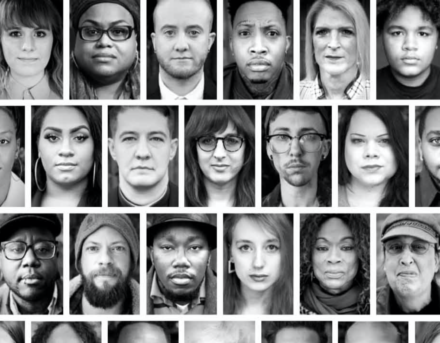

In honor of International Trans Day of Visibility, singer-songwriter and theatre artist Benjamin Scheuer has released “I Am Samantha,” a new track that recounts the real-life journey a transgender woman he met and befriended at a coffeeshop in New York City, along with a powerful accompanying music video.
Scheuer is well-known throughout the theatre world on both sides of the Atlantic for his 2014 one-man show “The Lion,” which won numerous awards including a Drama Desk Award for Outstanding Solo Performance, an off-West End Award for Best New Musical, and an ASCAP Cole Porter Award for Songwriting. He’s also a published children’s author (alongside wife Jemima Williams) for Simon & Schuster, having written “Hibernate With Me” and “Hundred Feet Tall,” as well as the author of “Between Two Spaces,” which documented his diagnosis with (and successful treatment for) stage IV Hodgkins’ Lymphoma.
The new track originated when Scheuer met Samantha Williams, a trans woman barista with whom he first became acquainted at the New York coffee shop he frequented. In response to Williams’ observation that she had never heard a song about someone named “Samantha,” he promised to change that fact, filling notebooks with details of her life and her journey to transition, and ultimately writing what is now “I Am Samantha.”
According to press materials:
“‘I Am Samantha’ is the story of one trans woman. It is also the story of what it means to love and be loved. With uncommon empathy, Scheuer unpacks not just Samantha’s journey, but the human journey we all take to find identity, acceptance, and love.”
The song comes accompanied by a music video directed by T Cooper (director of the award-winning documentary “Man Made”) and featuring a cast of 27 trans actors – believed to be the largest trans cast assembled to date. The visual was also helmed by an all-female, LGBTQ, and/or person of color crew. Notable cast members include Monica Helms (creator of the Transgender Pride Flag) and Skyler Jay(Season 2 of “Queer Eye”).
The official video is joined by a behind-the-scenes “making of” documentary, directed by Allison Glock-Cooper, who is herself an acclaimed author/director.
The release is also accompanied by personal note from Williams, dated June 6, 2019, sharing her perspective on the origins of the song:
“He’s a customer at the West Village coffee shop where I work, a fellow artist (I’m a writer; he’s a musician) who attended a reading of one of my screenplays and gave truly helpful notes, a tall guy with a boyish face and steampunk style, with cherry-dyed hair, elaborate boots and epaulets, and yet announcing his presence most resoundingly with his seemingly ever-present smile and earnest, enthusiastic greetings. Benjamin Scheuer (pronounced SHOY-er) is a storyteller with a guitar, sharing through song his own very personal trials and triumphs as well as those of others. I already knew this when in his presence I complained to a coworker, as we listened to the Foo Fighters song ‘Sean’ (also my fellow barista’s name), that there were no popular songs about ‘Samantha,’ the name I had taken as my own about a year before (though I’m still not sure this oversight of songwriters throughout contemporary music history is actually true).
“‘I Am Samantha’ was conceived in that moment of everyday food-service-industry banter, both songwriter and subject knowing this wouldn’t be just another lighthearted serenade or would-be rock hit in which the name was chosen simply because it rhymed with something or had the right number of syllables. This was highlighted for Benjamin when I told him the origin of ‘Samantha,’ that it had been the only name my parents could agree on prior to my birth, not yet knowing what was between my legs—which would ultimately lead to a name I went by for decades before all but erasing it from identifying documents (Ohio being one of four states that don’t allow changes to one’s birth certificate).
“Benjamin and those involved in every aspect of the recording, producing and upcoming release of ‘I Am Samantha’ have each endeavored to understand and do right by the story of my transition from [dead name] to the fully realized, confident person I am today. Each of them I’ve had the pleasure of meeting is just as evidently excited as I am to share this song, this story of struggle and self-discovery, with the world—so that it might do what art uniquely can, which is to increase empathy by revealing the world through someone else’s eyes, while also, I can attest, making some of us feel just a little less lonely.”
The song is being released today,March 31, on International Transgender Day of Visibility in partnership with a host of incredible organizations including the Transgender Legal Defense & Education Fund (TLDEF), GLAAD, Trans Lifeline and The Ally Coalition.
You can watch the video for “I Am Samantha,” along with the accompanying BTS clip, below.
Sports
US wins Olympic gold medal in women’s hockey
Team captain Hilary Knight proposed to girlfriend on Wednesday

The U.S. women’s hockey team on Thursday won a gold medal at the Milan Cortina Winter Olympics.
Team USA defeated Canada 2-1 in overtime. The game took place a day after Team USA captain Hilary Knight proposed to her girlfriend, Brittany Bowe, an Olympic speed skater.
Cayla Barnes and Alex Carpenter — Knight’s teammates — are also LGBTQ. They are among the more than 40 openly LGBTQ athletes who are competing in the games.
The Olympics will end on Sunday.
Movies
Radical reframing highlights the ‘Wuthering’ highs and lows of a classic
Emerald Fennell’s cinematic vision elicits strong reactions

If you’re a fan of “Wuthering Heights” — Emily Brontë’s oft-filmed 1847 novel about a doomed romance on the Yorkshire moors — it’s a given you’re going to have opinions about any new adaptation that comes along, but in the case of filmmaker Emerald Fennell’s new cinematic vision of this venerable classic, they’re probably going to be strong ones.
It’s nothing new, really. Brontë’s book has elicited controversy since its first publication, when it sparked outrage among Victorian readers over its tragic tale of thwarted lovers locked into an obsessive quest for revenge against each other, and has continued to shock generations of readers with its depictions of emotional cruelty and violent abuse, its dysfunctional relationships, and its grim portrait of a deeply-embedded class structure which perpetuates misery at every level of the social hierarchy.
It’s no wonder, then, that Fennell’s adaptation — a true “fangirl” appreciation project distinguished by the radical sensibilities which the third-time director brings to the mix — has become a flash point for social commentators whose main exposure to the tale has been flavored by decades of watered-down, romanticized “reinventions,” almost all of which omit large portions of the novel to selectively shape what’s left into a period tearjerker about star-crossed love, often distancing themselves from the raw emotional core of the story by adhering to generic tropes of “gothic romance” and rarely doing justice to the complexity of its characters — or, for that matter, its author’s deeper intentions.
Fennell’s version doesn’t exactly break that pattern; she, too, elides much of the novel’s sprawling plot to focus on the twisted entanglement between Catherine Earnshaw (Margot Robbie), daughter of the now-impoverished master of the titular estate (Martin Clunes), and Heathcliff (Jacob Elordi), a lowborn child of unknown background origin that has been “adopted” by her father as a servant in the household. Both subjected to the whims of the elder Earnshaw’s violent temper, they form a bond of mutual support in childhood which evolves, as they come of age, into something more; yet regardless of her feelings for him, Cathy — whose future status and security are at risk — chooses to marry Edgar Linton (Shazad Latif), the financially secure new owner of a neighboring estate. Heathcliff, devastated by her betrayal, leaves for parts unknown, only to return a few years later with a mysteriously-obtained fortune. Imposing himself into Cathy’s comfortable-but-joyless matrimony, he rekindles their now-forbidden passion and they become entwined in a torrid affair — even as he openly courts Linton’s naive ward Isabella (Alison Oliver) and plots to destroy the entire household from within. One might almost say that these two are the poster couple for the phrase “it’s complicated.” and it’s probably needless to say things don’t go well for anybody involved.
While there is more than enough material in “Wuthering Heights” that might easily be labeled as “problematic” in our contemporary judgments — like the fact that it’s a love story between two childhood friends, essentially raised as siblings, which becomes codependent and poisons every other relationship in their lives — the controversy over Fennell’s version has coalesced less around the content than her casting choices. When the project was announced, she drew criticism over the decision to cast Robbie (who also produced the film) opposite the younger Elordi. In the end, the casting works — though the age gap might be mildly distracting for some, both actors deliver superb performances, and the chemistry they exude soon renders it irrelevant.
Another controversy, however, is less easily dispelled. Though we never learn his true ethnic background, Brontë’s original text describes Heathcliff as having the appearance of “a dark-skinned gipsy” with “black fire” in his eyes; the character has typically been played by distinctly “Anglo” men, and consequently, many modern observers have expressed disappointment (and in some cases, full-blown outrage) over Fennel’s choice to use Elordi instead of putting an actor of color for the part, especially given the contemporary filter which she clearly chose for her interpretation for the novel.
In fact, it’s that modernized perspective — a view of history informed by social criticism, economic politics, feminist insight, and a sexual candor that would have shocked the prim Victorian readers of Brontë’s novel — that turns Fennell’s visually striking adaptation into more than just a comfortably romanticized period costume drama. From her very opening scene — a public hanging in the village where the death throes of the dangling body elicit lurid glee from the eagerly-gathered crowd — she makes it oppressively clear that the 18th-century was not a pleasant time to live; the brutality of the era is a primal force in her vision of the story, from the harrowing abuse that forges its lovers’ codependent bond, to the rigidly maintained class structure that compels even those in the higher echelons — especially women — into a kind of slavery to the system, to the inequities that fuel disloyalty among the vulnerable simply to preserve their own tenuous place in the hierarchy. It’s a battle for survival, if not of the fittest then of the most ruthless.
At the same time, she applies a distinctly 21st-century attitude of “sex-positivity” to evoke the appeal of carnality, not just for its own sake but as a taste of freedom; she even uses it to reframe Heathcliff’s cruel torment of Isabella by implying a consensual dom/sub relationship between them, offering a fragment of agency to a character typically relegated to the role of victim. Most crucially, of course, it permits Fennell to openly depict the sexuality of Cathy and Heathcliff as an experience of transgressive joy — albeit a tormented one — made perhaps even more irresistible (for them and for us) by the sense of rebellion that comes along with it.
Finally, while this “Wuthering Heights” may not have been the one to finally allow Heathcliff’s ambiguous racial identity to come to the forefront, Fennell does employ some “color-blind” casting — Latif is mixed-race (white and Pakistani) and Hong Chau, understated but profound in the crucial role of Nelly, Cathy’s longtime “paid companion,” is of Vietnamese descent — to illuminate the added pressures of being an “other” in a world weighted in favor of sameness.
Does all this contemporary hindsight into the fabric of Brontë’s epic novel make for a quintessential “Wuthering Heights?” Even allowing that such a thing were possible, probably not. While it presents a stylishly crafted and thrillingly cinematic take on this complex classic, richly enhanced by a superb and adventurous cast, it’s not likely to satisfy anyone looking for a faithful rendition, nor does it reveal a new angle from which the “romance” at its center looks anything other than toxic — indeed, it almost fetishizes the dysfunction. Even without the thorny debate around Heathcliff’s racial identity, there’s plenty here to prompt purists and revisionists alike to find fault with Fennell’s approach.
Yet for those looking for a new window into to this perennial classic, and who are comfortable with the radical flourish for which Fennell is already known, it’s an engrossing and intellectually stimulating exploration of this iconic story in a way that exchanges comfortable familiarity for unpredictable chaos — and for cinema fans, that’s more than enough reason to give “Wuthering Heights” a chance.
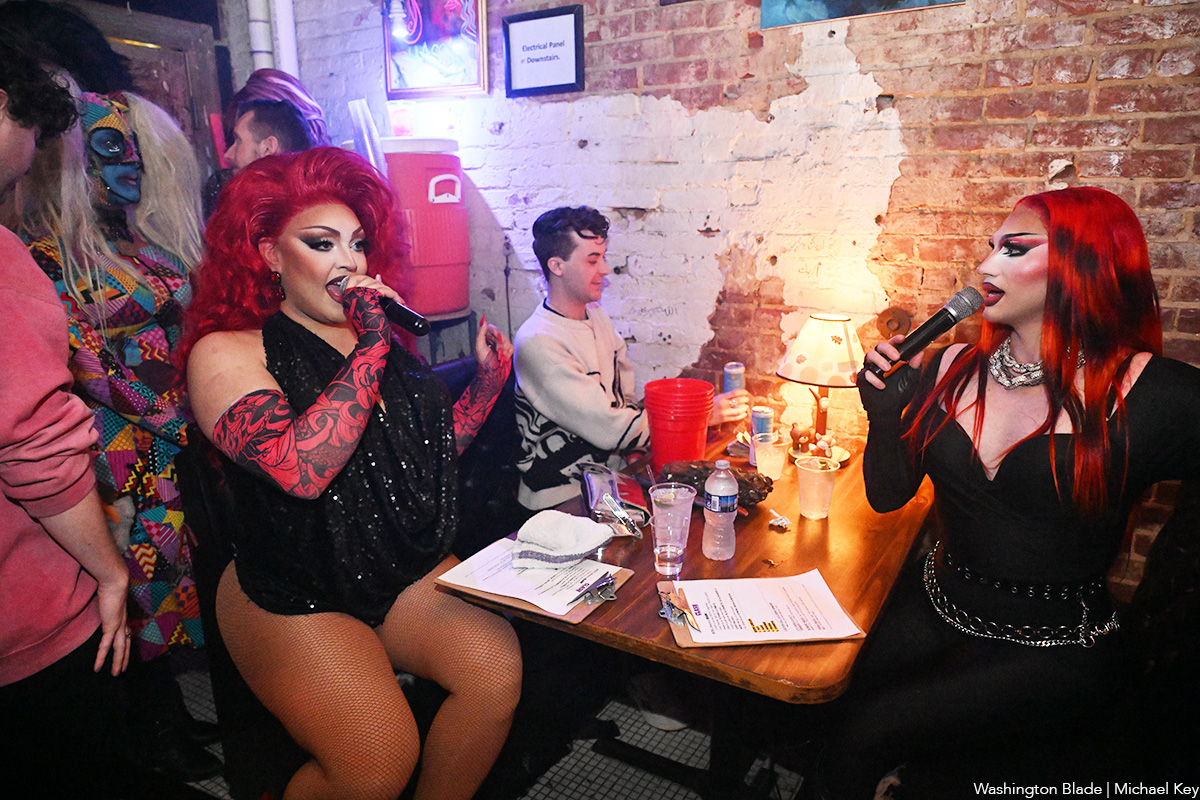
Crimsyn and Tatianna hosted the new weekly drag show Clash at Trade (1410 14th Street, N.W.) on Feb. 14, 2026. Performers included Aave, Crimsyn, Desiree Dik, and Tatianna.
(Washington Blade photos by Michael Key)

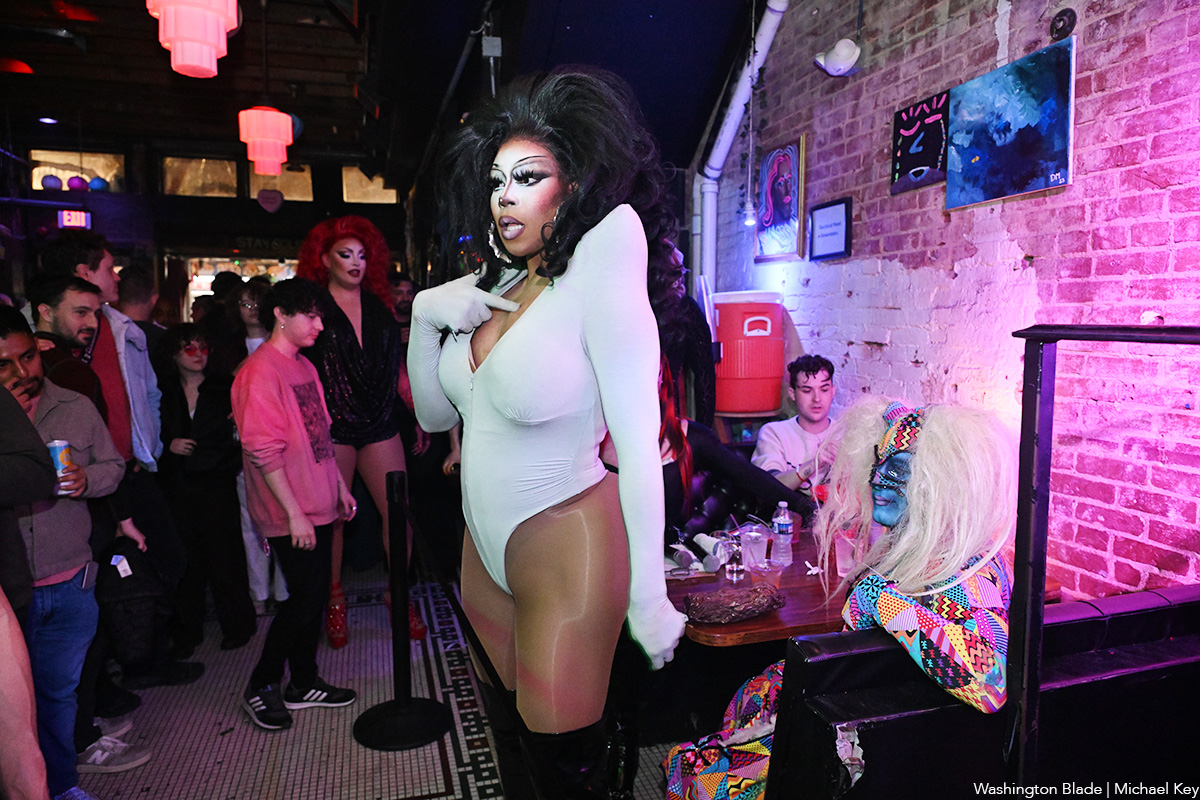
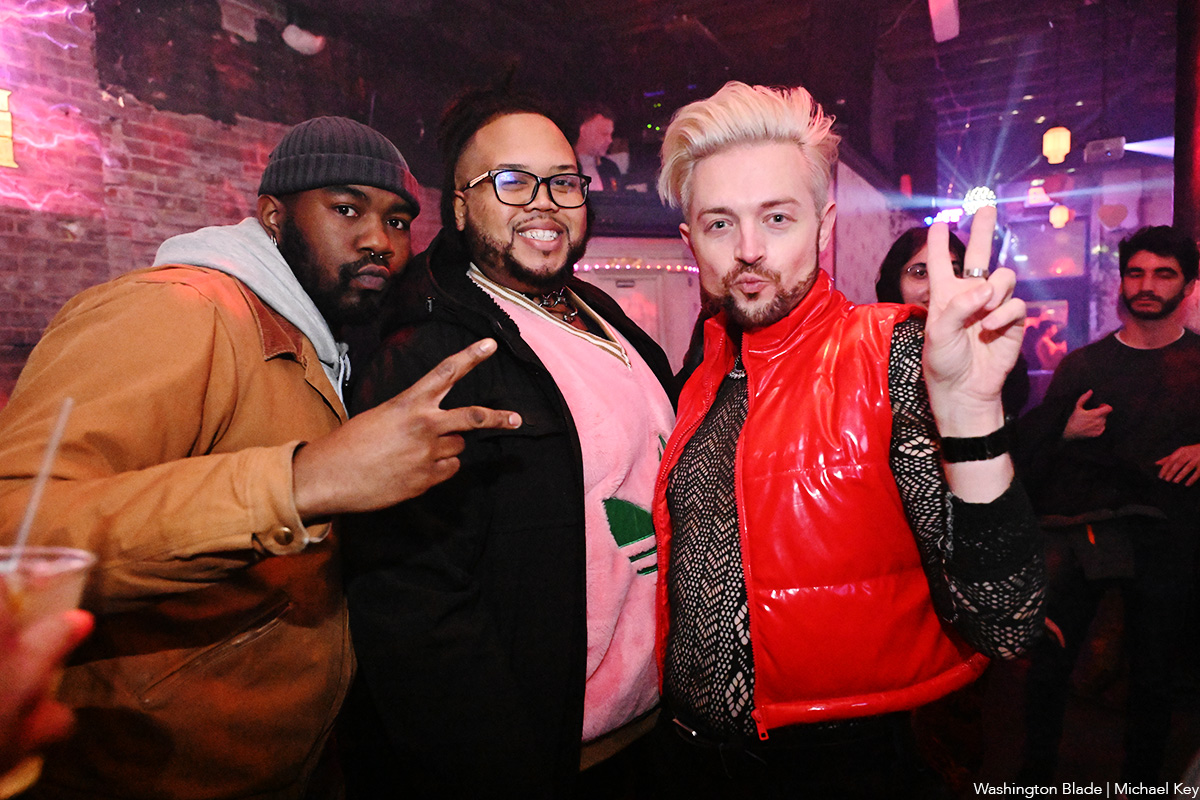
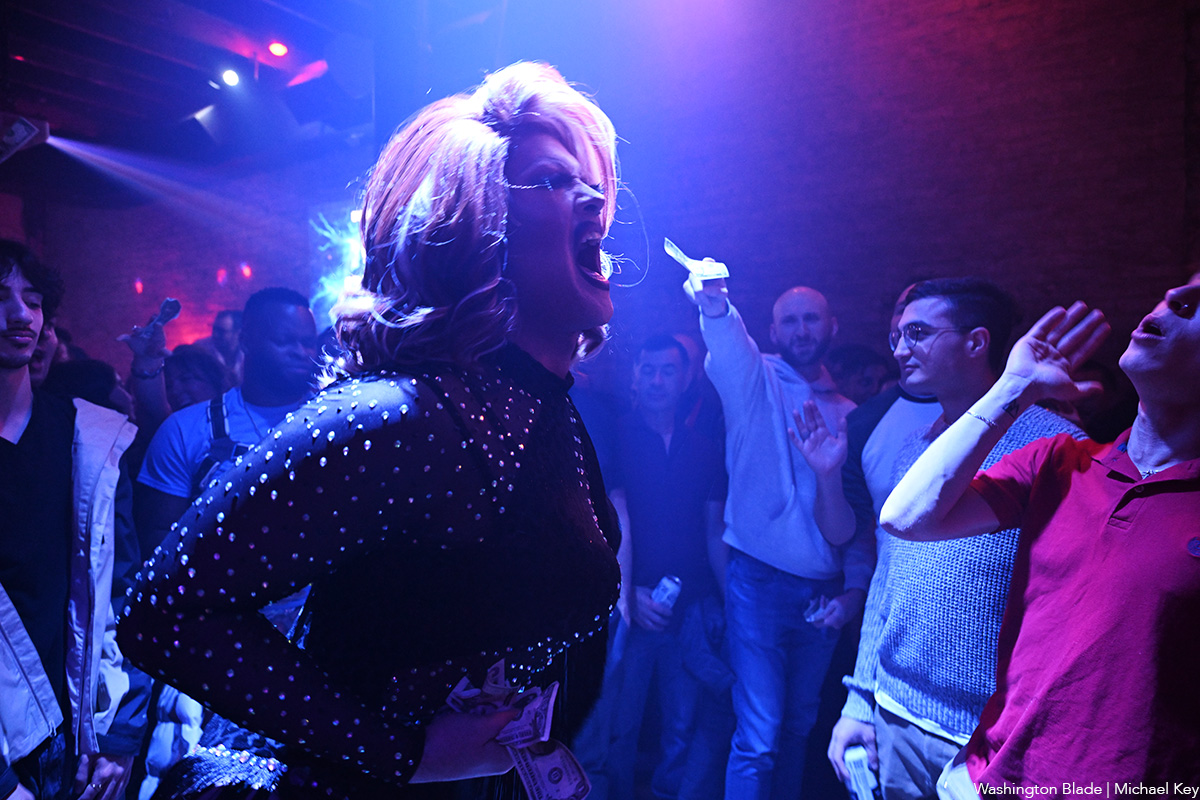

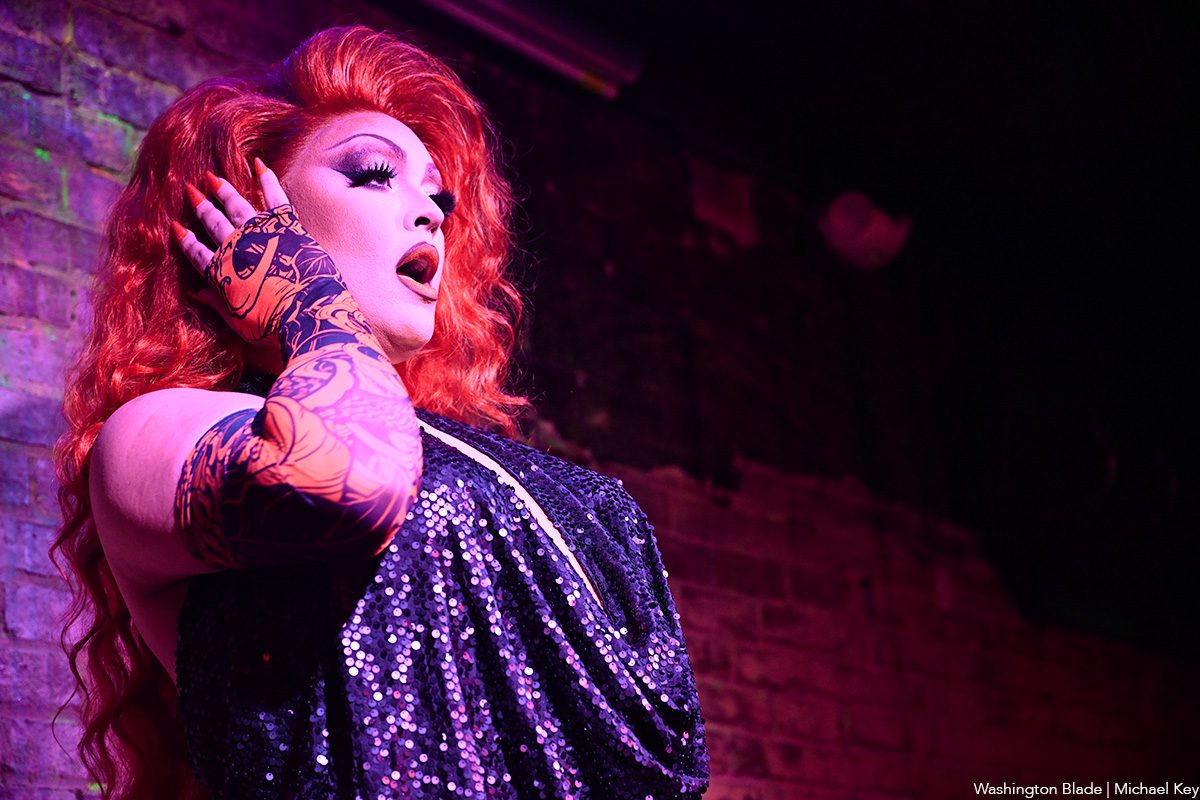
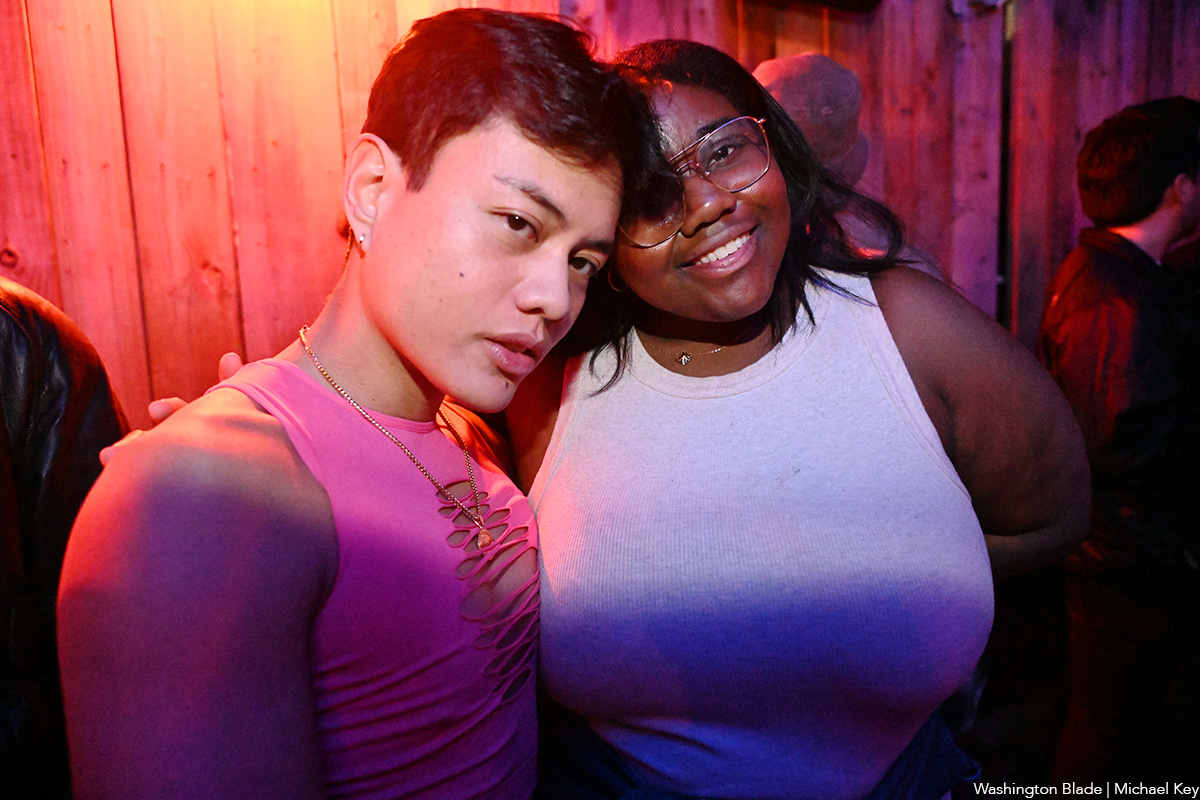
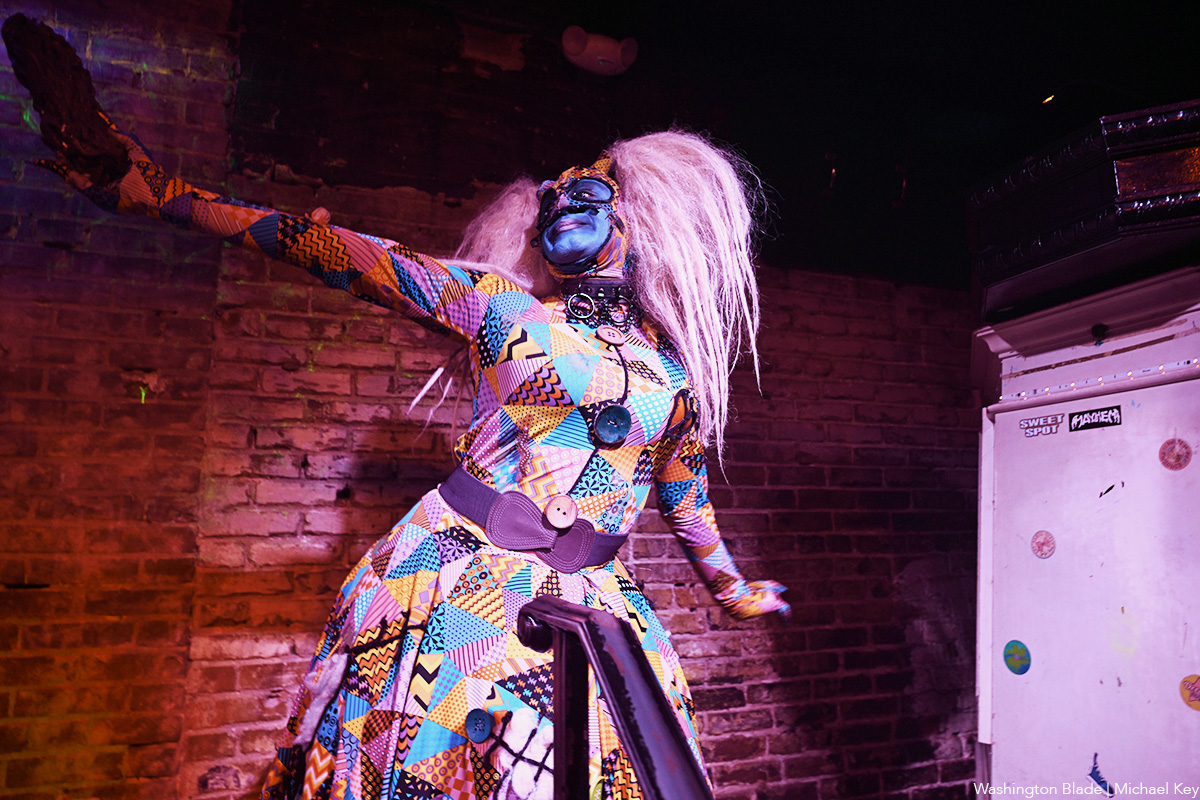


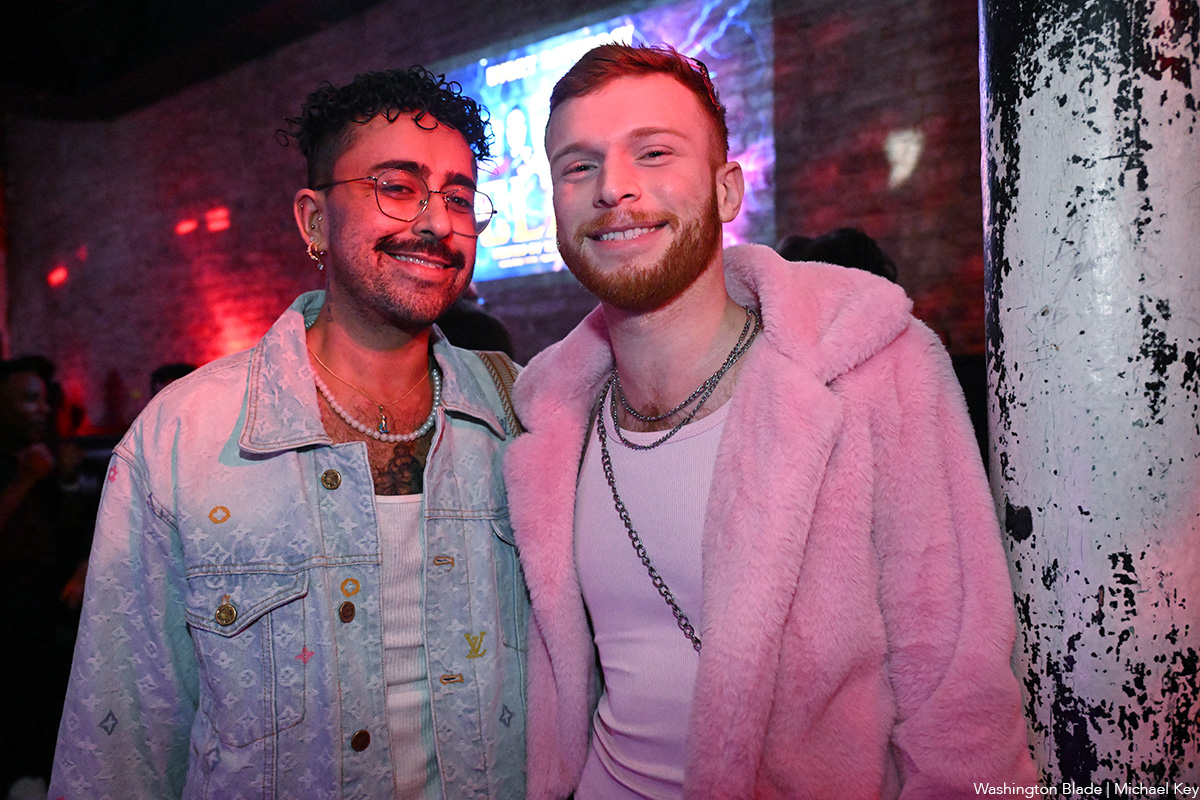
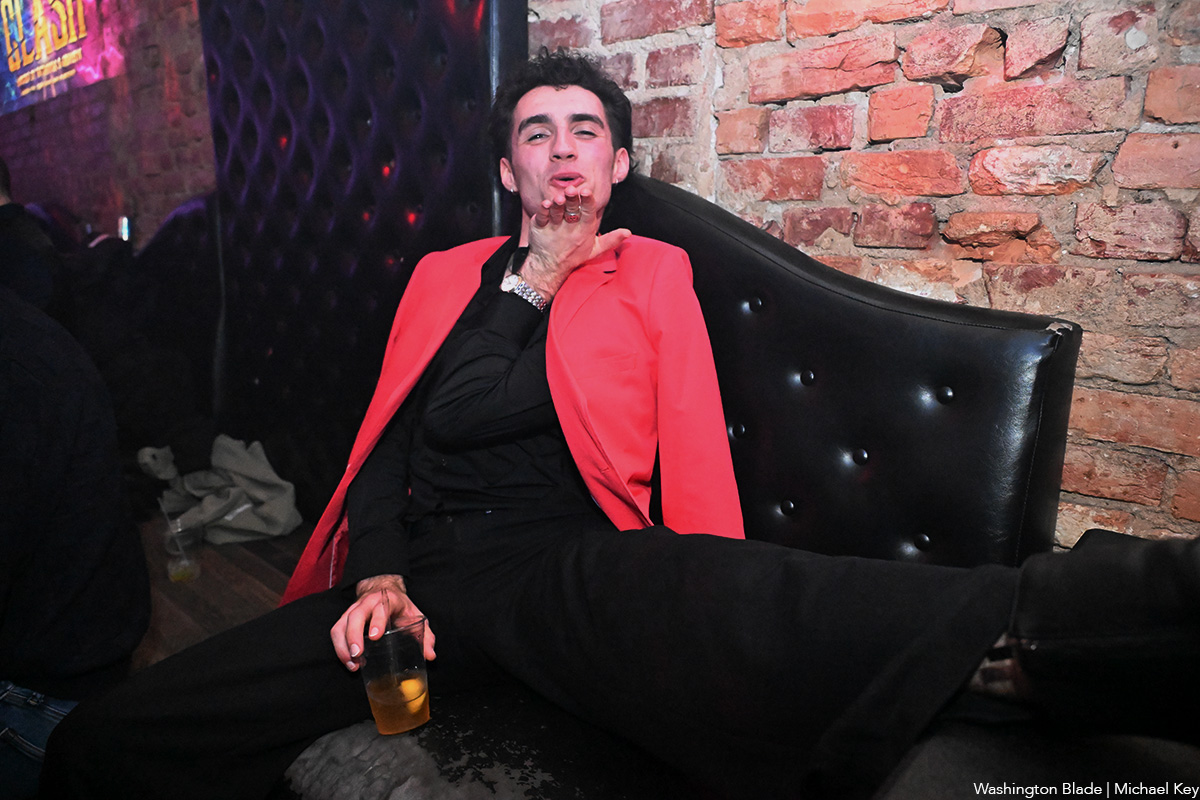
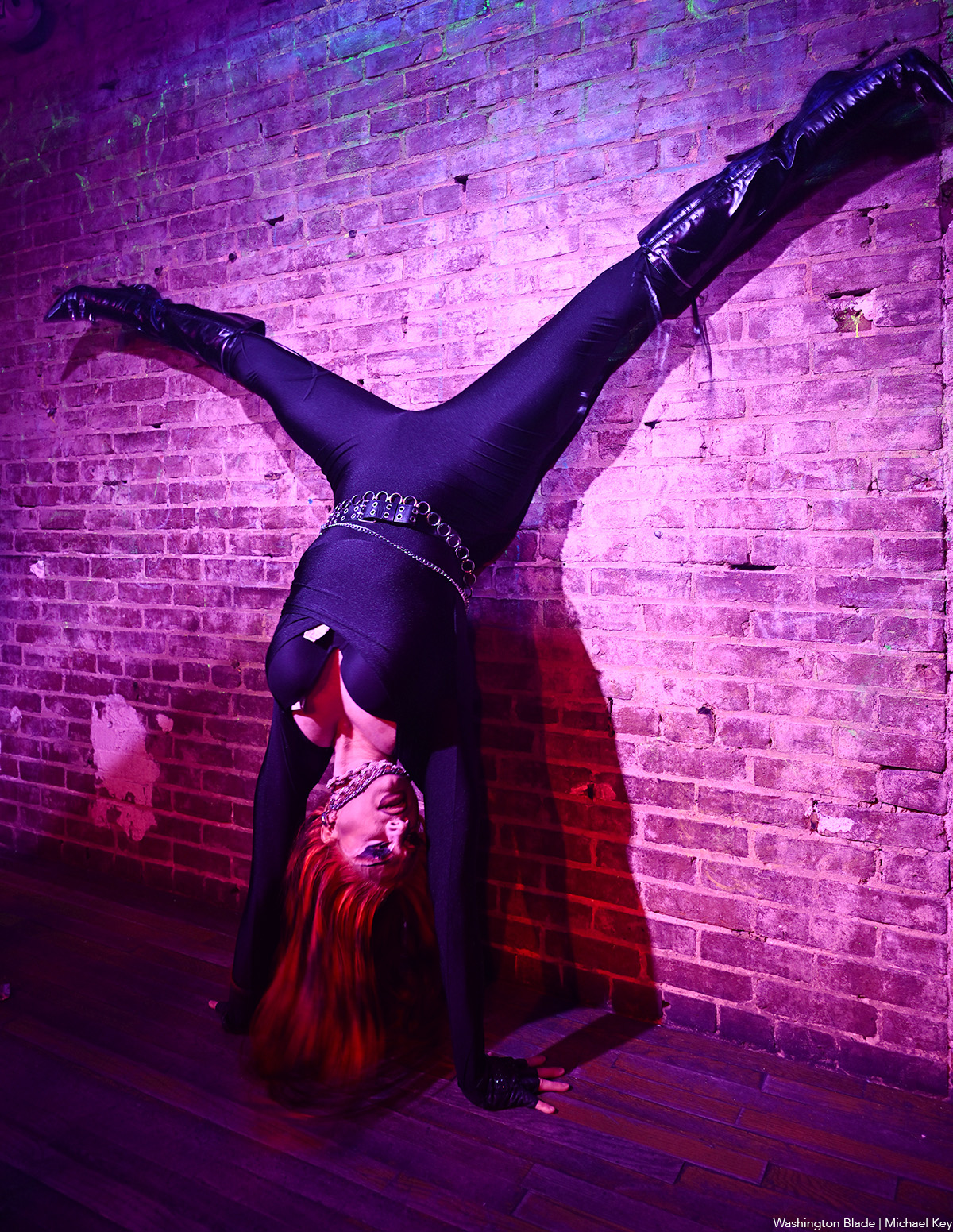
-

 Baltimore4 days ago
Baltimore4 days ago‘Heated Rivalry’ fandom exposes LGBTQ divide in Baltimore
-

 Real Estate4 days ago
Real Estate4 days agoHome is where the heart is
-

 District of Columbia4 days ago
District of Columbia4 days agoDeon Jones speaks about D.C. Department of Corrections bias lawsuit settlement
-

 European Union4 days ago
European Union4 days agoEuropean Parliament resolution backs ‘full recognition of trans women as women’




















